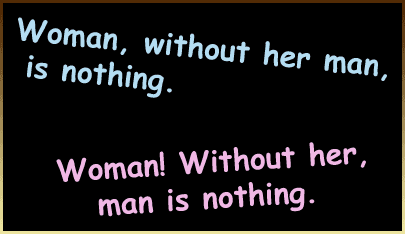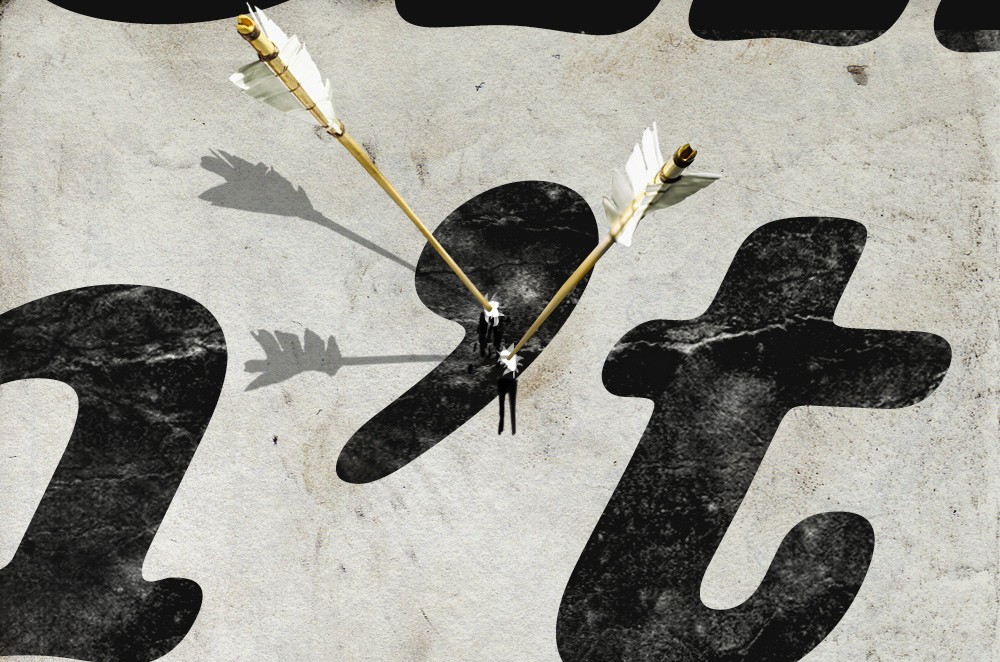ACCRA — In a recent edition of Education Matters, a very popular column in the Daily Graphic, Anis Haffar, a former teacher of English in the United States of America and presently Executive Director of GATE (Gifted and Talented Education), wrote a brilliant article on the usefulness of punctuation marks in modern grammar. In the same week, I. K. Gyasi, another experienced and respected newspaper columnist for The Ghanaian Chronicle, wrote to The Daily Graphic, graciously lauding Mr. Haffar for bringing the subject up for discussion and also doing well to attach some urgency to the matter.
Like E.B. Whyte and William Strunk, Jr., distinguished authors of The Elements of Style, one of the timeless and most authoritative works on English, Haffar and Gyasi believe that good punctuation is a clever way of tidying up messy sentences to promote clearer understanding. The proper application of punctuation marks reduces redundancies and convoluted meanings, paving the way for better appreciation of ideas and concepts.
While the correct application of the commas and apostrophes shows some understanding of the rules of the language and promotes effective communication, a misuse of the punctuation marks could be expensive. In most cases, a reader could make sense out of a sentence or phrase that contains ‘faulty’ punctuation marks. Sometimes, we pretend the marks were not there at all or we gloss over them for convenience. We usually get away with our bad grammar and terrible punctuation.
For Rogers Telecommunication, however, the price of a wrong comma at the wrong place cost them $2.13Million. One sentence in a 14 page contractual agreement caused the company to pay millions because of where a comma had been placed. The controversial sentence read: The agreement “shall continue in force for a period of five years from the date it is made, and thereafter for successive five year terms, unless and until terminated by one year prior notice in writing either party.”
This looks harmless enough. Indeed, it seems like a perfect sentence until the grammarians dish out their linguistic stethoscopes to look for trouble or see too much in too little. Fastidious as they are, they have special abilities to smell a bad comma or terrible register from afar. That is how they spotted the misplacement of the second comma in the sentence above.

The placement, or rather the misplacement of that second comma, allows for the contract to be cancelled at any time upon one year’s written notice. If the comma had not been placed where it was, it would have meant that the right to cancel wouldn’t apply to the first five years. Rogers’ intention was to hold onto the contract for at least five years, but all that was undone by a single comma. This may be the most expensive comma since the invention of printing.
If he were alive today, George Bernard Shaw would contest the ruling any day. The American writer never appreciated the complexity and awkwardness that such marks, especially the Apostrophe, introduced. Shaw described the apostrophe as the “uncouth bacilli of the English Language.” He wrote: “The apostrophies [sic] in ain’t, don’t, haven’t, etc., look so ugly that the most careful printing cannot make a page of colloquial dialogue as handsome as a page of classical dialogue. Besides, shan’t should be sha”n’t, if the wretched pedantry of indicating the elision is to be carried out. I have written aint, dont, havnt, shant, shouldnt and wont for twenty years with perfect impunity, using the apostrophe only where its omission would suggest another word: for example, hell for he’ll. I also write thats, whats, lets, for the colloquial forms of that is, what is, let us; and I have not yet been prosecuted.”
Shaw was not alone in the aversion of this linguistic puritanism. Michael Bolen of the National Post, Canada, asserts that “Finding sentences that would become unclear if their apostrophes were torn from them is next to impossible, while the confusion and frustration their usage creates is widespread.” Perhaps, Rogers would have avoided any fines if they did not use any punctuation marks at all. And frankly, except in very obvious cases, it is rare for two writers or professionals from different trades to always agree on the placement of commas in a sentence. The semi-colon, for instance, is mostly used wrongly by even the most accomplished users of the English Language. I use it very sparingly. F. Scott Fitzgerald, a fine grammarian, has resolved to use the exclamation mark once a year. He says it is like laughing at your own jokes.

Elegant writing is not just for grammarians and language teachers. You do not need to be William Wordsworth to recognize the worth of words. Even as common and ‘unsophisticated’ users of the English Language, we are required to be ‘mechanical’ with mechanical accuracy and apply the rules of the language with some caution. Good writing makes reading exciting. That is why you would want to read Barack Obama’s ‘The Audacity of Hope’ or Ama Atta Aidoo’s ‘Changes’ twice and still want to read them again. The pages turn themselves as naturally as the way leaves fall from a tree.
They may be uncouth bacilli but we need the punctuation marks to succeed in today’s world of work, perhaps more than Shaw needed them in his time. An educationist and comedian, Victor Borge, devised a very lively way of teaching the punctuation marks. He created different sounds for each of them, often squawking, hooting and squealing to demonstrate their different uses. In today’s computer world, we would have more ingenious ways of teaching and learning the punctuation marks to perfect our writing.
Every year, the people of Canada mark the National Punctuation Day to build on the campaign for good English and good writing. In the United States, Martha Brockenbrough has done a terrific job with the Society for the Promotion of Good Grammar (SPOGG). They have also done well to institute a National Grammar Day to promote good grammar. The society “is for people who crave good, clean English sentences cast well and punctuated correctly. It’s about clarity.” Shouldn’t we all be members of such a society? We should have branches in all our senior high schools.
I am using this edition of Tissues of the Issues to propose a day in September as a National Grammar Day in Ghana. I hope somebody picks this up.













Commas are like pauses and variation in voice pitch, they help convey meaning, in written sentences. But the apostrophe and its history is a little tenuous. Usually it’s been used to show possession (except for personal pronouns), to mark omissions in contraction, and to form certain plurals. But could the English language be better off without apostrophes? Some would like to see them vanish. Would you agree?
George Bernard Shaw did it and so can everyone! Apostrophes are useless. Major Barbara, Arms and the Man, and Pygmalion—which My Fair Lady was based on were published without these hideous things. Their abolition did no harm there. I am not using them in this commentary, and theres no place where my meaning is harmed by their absence. The biggest problem you will run into if you decide to do away with them is that your auto-correct wont want you to. Yes, there are a few places where there would be a small potential for ambiguity. They wouldnt exactly be the only ambiguous things in English. And theyre small potatoes in comparison to the confusion and general social havoc attendant on the use of apostrophes!
I have to say that commas are very useful seeing that they cost people a whole lot of money, and headaches, and their jobs, when they are used inappropriately or incorrectly. Most of them don’t add anything useful, a significant number of apostrophes are really only there for condescension and even where an apostrophe can add something useful, we usually get by without it.
This is a great article to show the faults in using punctuation falsely at a cost of up to 2 million dollars to one company (but hopefully never so much to an individual). The only criticism I have of the article is that the author uses a lot of european/western authors as examples, especially white western men. I would love to hear what fellow Africans have to say about grammar. How much is this discussed among African writers? What do they think of the punctuation scrutiny? Again, thanks for the informative remarks on grammar.
I’m sure colleges would lose a lot of money without commas and apostrophes. What else would you learn to distinguish yourself from a liberal arts education?
Let the English scholars exercise their authority, I just pass by to learn something. Thanks
Hahaha, Professor, you paa!!!!
Dade Afre Akufu I humbly submit that English was not my major so could never be good at it like how you, Akosua M. Abeka and Co.
Substance matters more than anything. We are all learning English – it will never be my languag! Twi is a more superior tongue in my humble opinion. Or is it not?
Blorfu Ye Dru! As for me I will stick to the basics: I will use commas as I was taught in my first essay in school (Myself and My Best Friend). I will try to stay away from apostrophes, I could barely find my wrist watch in the morning, how much more where Apostrophies [sic] go? My goodness, I hope these standards do not matter on Facebook. Or, some of us, must go back to Kindergarten and learn German. By the way, when shall I see an essay on syntax and Twi, or Ewe, or Ga or Hausa. Grandmother Africa paa!!!